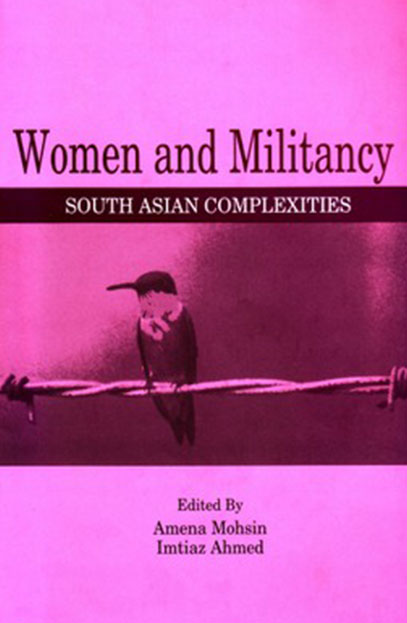
- Shop
- Women and Militancy: South Asian Complexities
Women and Militancy: South Asian Complexities
https://uplbooks.com/shop/9789845060288-women-and-militancy-south-asian-complexities-8324 https://uplbooks.com/web/image/product.template/8324/image_1920?unique=3d813f3
| Language: English |
Tags :
Book Info
This book is an attempt to bring the complexities and multiplicities of violence inflicted against women and the different dimensions of militarisation. Several issues however inform and shape the South Asian complexities with respect to women and militancy, and the book attempts to address them both theoretically and empirically. Firstly, the book looks at the challenges and contradictions. South Asia has outstanding women leaders at the state level, but violence against women and that too of a varied nature is on the rise. Again, women militants are found in record numbers but at the same time, women are at the forefront in the demand for peace. Secondly, the aspects of colonialism and patriarchy are examined. The late colonialist and their notions of reforms. the latter's association with masculinity and the subjugation of colonised women is evident through the construction of nationalism and the nation-state. In this context, even if the 'territoriality' of colonialism is disputed, few would rule out the colonialism of the mind of the concerned population. Moreover, patriarchy is reproduced as an extension or a mode of domination of the colonial power. Thirdly, state, nation and the place of women are brought under scrutiny. Memories and traumas are 'personal', like rape, riot or war, although the circumstances responsible for them are very much 'public' blending therby not only the relationship between personal and the public but also raising the question whether the formation of the modern state and the organisation of the nation tends to blur the distinction between the two. Finally, the discussion on multilayered marginalisation manifests in the fluidity of identities and division of labor variegated by gender, class and ethnicity, This, otherwise suggests that the campaign for change must be organised not only at the local and national levels but also at the regional and global levels. This book is a contribution to that effort.

Amena Mohsin
Amena Mohsin teaches in the Department of International Relations at the University of Dhaka. She graduated from the same University and later on received her MA and PhD degrees from the University of Hawaii, USA, and Cambridge University, UK, respectively. She specialises on nationalism, ethnicity and minority issues. She has published numerous articles in various journals.


